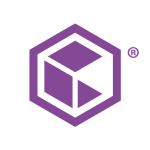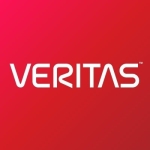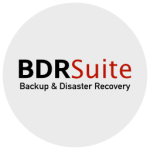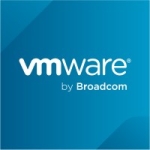What is our primary use case?
We're solving the issues of disaster recovery with it. So, our main use case is disaster recovery. We use it to do real-time replication of our data so that if we needed to failover for whatever reason or we had a disaster at our primary data center, we would be able to spin up in our colo disaster recovery location with minimum downtime. Our delay is about five seconds. So, if something negative were to happen to our data center, our DR copy would be within five seconds of the original copy, which is pretty good. We are also using it for testing.
Our setup is on-prem. It enables you to do DR in the cloud rather than in a physical data center, but we didn't go that route. We went the route of creating our own colo location. So, instead of leveraging Azure or AWS, we decided to maintain our own facility. Our primary data center is on-prem, and our disaster recovery location is a colo location that we control.
The current version that we're using is 9.5, which is the latest. When we installed it, it was probably version 8.
How has it helped my organization?
The mere fact that we're able to do live testing has definitely helped us with deployment times. It has helped us with troubleshooting as well.
It saves effort, time, and money. It saves us the effort of having to make sure that information is replicated. It saves us the time that would be required to build that ad hoc, and it allows it to be more of a point-and-click operation than something for which we have to dedicate more time and effort. Especially in our use case, we're not replicating a crazy amount. We're only replicating about 40 virtual machines and about 13 terabytes of data. It's not a small amount, but it's not a crazy large amount either. To be able to load all those 40 machines at one time with one click and then bring them up either in production failover or production test is fantastic. We haven't really been able to find any competitor that can do that at least as easily as Zerto. That was the driving force.
It has helped to reduce our organization's disaster recovery testing. We can now do it in minutes, whereas previously, we could never do a valid test. We could only test that our backups were copied. We could never spin them up and run them all. Barracuda would do point-in-time backups, but we didn't have any place where we could actually deploy and test them all. That's not necessarily a hundred percent on Barracuda, but from basically not being able to do it, we are now able to do it within a few minutes.
It has saved all the time that would've been spent validating copies of virtual machines. It can now be used to actually test that everything is connected, everything is spun up properly, and everything is connecting and speaking properly. So, there has been a tremendous amount of time savings. People who were responsible for doing it have saved time because they don't have to spend an entire day testing to make sure that the backup is copied properly so that they can be recovered. Now, we can do a test failover in a few minutes and be able to validate it like that.
It helps to protect VMs in our environment. It has been great in terms of RPOs. Prior to using Zerto, depending upon the level of disaster, it took us hours, days, or weeks to recover. Now, the average recovery is nine seconds. That's pretty big. We went from hours, days, or weeks to seconds and minutes to recover.
Its overall impact on our RTOs has been fantastic.
What is most valuable?
Its main feature is continuous replication. We are able to have continuous replication, and we are able to have the information available as per recovery point objectives (RPOs) and how much data to retain. The real selling point was to be able to have those statistics and be able to test and show that the replication is occurring properly and then to be able to do live passive testing.
We can spin up our environment in DR without affecting production, which is probably the biggest feature for us. We have the ability to do passive testing. We can even test scenarios, such as installing software or changing software. We can make modifications without affecting our production environment. So, the test functionality of being able to test the failover solution and being able to bring up our virtual machines in a test mode is the biggest benefit.
What needs improvement?
In general, the solution is pretty good, but because it is geared toward simplicity, sometimes, when things go wrong, the answer is not very detailed so that things can be solved quickly. If things do go wrong, it does require a little bit deeper troubleshooting to resolve the issues. That's the only area where improvement could occur. There should be a little bit more details about if things go wrong, how to remedy them.
Everything is meant to be simple. When something doesn't work, even though what you were trying to do appeared to be very simple, there are probably a lot of pieces behind the scenes. So, to be able to narrow down where in those 100 steps something went wrong can be a little tricky. When there is a failure, there should be a more detailed explanation of what the error is and how to remediate it. Currently, it's a little vague. A part of that could be because we use Zerto on top of Hyper-V. VMware still has a very large market share over Hyper-V and a lot of the information and a lot of the deployment plans are geared towards VMware. So, sometimes, there are new features that first roll out to VMware and then come to Hyper-V.
For how long have I used the solution?
I have been using this solution for about three years.
What do I think about the stability of the solution?
It's a very stable platform, but sometimes, we've had instances where we've upgraded versions and went from version 8 to 8.5 or to version 9 to 9.5, and there were issues. When you deploy, depending upon how many host machines you have, something might go wrong with the deployment to a host. In that case, you have to do a decent amount of work so that you can remove your virtual machine and restart the underlying host, which is something that you try to avoid doing, but sometimes, that's required in order to resolve the issue so that you can do the upgrade properly and allow that. When there is a problem like that, it can affect the performance of the system, but that falls more under maintenance and upkeep. In general, it does run pretty smoothly. It comes down to the fact that whenever there is a problem, it's a problem. That's the same with anything. Everything works until it doesn't, but in general, it works more than it doesn't, which is what you want. I would rate it a nine out of ten in terms of stability.
How are customer service and support?
Their tech support is pretty good. We've had issues where we have reached out to them, and in general, they're pretty responsive and helpful. A few times, we've had them jump on to do screen shares and pull information and do deeper dives into some of those errors that didn't have detailed inputs about the area we need to look into, and their tech support has been pretty good. Based on the help that they provided for the issues we had, I would rate them a 10 out of 10.
How would you rate customer service and support?
Which solution did I use previously and why did I switch?
We were using point-in-time backups provided by Barracuda. The issue with that was that we were taking point-in-time backups, and we were saving them in the cloud, but if we didn't have a location to restore the data to, the backups weren't very useful. They were useful from the backup standpoint but not from a disaster standpoint. In such a case, our primary data center would be wiped out. We would have our cloud copy, which would probably be a day old, and then we would have to take that cloud copy and download it somewhere where we don't have machines. So, we would have to buy servers or buy something to download our backup copies to and then spin them up. That could potentially take weeks. Now, we already have the hardware in place, or if it was a cloud, we would leverage the cloud, but we already have the hardware in place. So, at any point, it's a matter of enabling, going live, and saying failover, and then basically, having our DR copy become live. So, the time to recover was the main reason for going for Zerto.
We still have the Barracuda solution in conjunction. A lot of that is due to the fact that we already have a long-term contract. We have a five-year contract with Barracuda. We probably don't need to renew that, but there are benefits of both. We have kept both solutions because they do slightly different things. The way we use Zerto is that it's focused mainly on disaster recovery. Barracuda gives us more of a long historical recovery for easily recovering things such as files. We have backups of virtual machines that might go back four or five years. You might argue that it is not worth it because a lot of the data that is multiple years old might not be of value.
The way it would work with Zerto is that we could keep a live copy within Zerto for 30 days. After that, we would have to take that data and throw it somewhere else for long-term storage, which would incur additional costs and adds a little bit. Because we already had Barracuda, we leveraged Barracuda for long-term retention. We don't use Barracuda for disaster recovery anymore, but we use it for point-in-time recovery. We take a backup that gets shipped to the cloud to have an extra copy that is just there, which then becomes part of a historical backup where we could go back six or seven months, whereas Zerto is only for recovering files up to a few days. Anything older than those few days would be recovered via Barracuda.
Zerto can do a backup for or recover data longer than that period of time, but it becomes a little bit different process. When we looked at Zerto three years ago, the ransomware, journaling, and being able to go back a few hours and restore your entire environment back to a point in time were nice features, but they weren't the selling point. The selling point was disaster recovery. So, that's the main thing for which we're using it. We are not looking at the ability to go back 30 days to recover a file. I definitely see it as a plus, but because it wasn't the initial selling point, and the way that we architected things, we don't necessarily use that right now. However, when our contract with Barracuda ends, instead of renewing, we could consider just buying long-term retention through a cloud provider and then maintaining a longer history with Zerto.
How was the initial setup?
There is a lot that goes into setting it up. So, the planning has to be done. We were pretty much able to have it up in a few hours, but it also depends on your use case and the complexity of your deployment. Like anything, there are a thousand ways to skin a cat. So, it depends upon how you want to have it set up. It depends on:
- How complex groundwork do you want to put in?
- How isolated do you want your test case to be?
- How isolated do you want different things to be set up?
There could be a little bit more complexity, but in general, it's pretty simple to get going. Obviously, there is a lot that goes into it, but the actual work of setting it up, once you have those decisions made, is pretty straightforward. It's pretty easy.
We definitely did a lot of planning, but we did the actual deployment or the actual configuration of it before we engaged with the professional services aspect of our deployment plan. When we bought the software, we had a project management plan and support from Zerto directly. We pretty much did all the setup ahead of time by ourselves. So, in our case, the setup was very simple and very easy.
It does require some maintenance. There are always service updates that are available, and occasionally, there will be little bumps in the road that require maybe reinstalling or updating something. In terms of general maintenance, as compared to other solutions, its maintenance is probably a little bit less than other solutions. Maintenance is still required, but it doesn't require an extreme amount of maintenance to keep things running smoothly.
What about the implementation team?
When we went to locate this software, we worked with ePlus. They made several recommendations on different solutions, and from those recommendations, we narrowed it down and picked Zerto.
I liked them a lot at the time. The sales rep that we had there was fantastic. Unfortunately, a few months after our project was purchased, our sales rep left the company, and then we just never really connected with any of the new people. That has not necessarily something to do with ePlus. They're a large, great company, but what really separated them and made that project beneficial was the account manager that we had during that time period. He was fantastic.
What's my experience with pricing, setup cost, and licensing?
In general, it's pretty fair because it is software. In our case, we built our own colo. So, the cost of the colo was very expensive, and that's where a lot of the equipment is. The same thing is there if we were going to spin up in the cloud, but as a solution, in general, it's pretty fair for what you get out of it and how it works. It's not cheap, but at the same time, you get what you pay for, and it's definitely worth the cost. You just have to understand that the cost of the software alone is not the total cost of the project of doing ransomware protection or disaster recovery. It's a piece of the pie, not the entire pie.
Which other solutions did I evaluate?
We did look at other similar solutions, but what made Zerto the solution that we went with was the fact that it included the recovery of the actual virtual machine. Other solutions had the ability to do the same kind of synchronous or near-continuous data replication. However, if we had the underlying data replicated but our virtual machine's copy or our virtual machine configuration was different or was not at that target location, we would have to then configure those machines to load the underlying data. The feature that made Zerto useful was that it handled that and replicated the virtual machine information as well. So, we didn't have to do that. Once we configure and specify it to replicate a virtual machine, all the data that's associated with it and its configuration is replicated. We don't have to deal with additional steps.
Three years ago, when we were looking at disaster recovery options, a lot of the solutions were targeted at replicating the underlying data but not necessarily how to get that data usable. Getting the data usable part is often the trickiest and the most time-consuming part. So, when you don't have to take that into consideration because it's already being copied and it's current, your downtime associated with a failure event is reduced. That was definitely a selling point for us.
We looked at Veeam, and we looked at how we use Pure Storage for our underlying data storage. They have the capabilities of doing synchronous, real-time replication, which has improved a lot in the past three years. So, the limitations that made it less appealing a few years ago might have been removed now, but at the same point, that's only the underlying data. We would still have to recreate virtual machines that will spin up that data. There is no other real solution that I'm aware of that does this as nicely. Even some of the other Microsoft native solutions aren't as nice and user-friendly. They definitely don't give you the ability to do testing. We couldn't spin up a replicated copy without causing issues. Zerto allows us to spin up a test version of our production software or our production VMs without affecting the production copy.
What other advice do I have?
There is a lot that goes into setting it up. So, the planning has to be done, but once it's running, it's very simple. If it's set up right, it literally involves a few clicks. Testing and failover can be done in a few clicks, which makes a very complex thing simple. So, if you set it up and you have the groundwork done, then with one or two clicks, you could do major testing, and you could do major failovers. From that standpoint, it's extremely simple to use once it's up and running.
They have a lot of other features that we don't really leverage 100%. We use it only for disaster recovery, but it also contains features for ransomware where you can recover files. Although we don't use that feature, that's definitely a benefit. We have recovered files from time to time but not because of ransomware. We maintain a history of up to 30 days for each of the virtual machines that we have. We have a different solution to recover files older than 30 days.
We don't really use Zerto for immutable data copies, which goes into the ransomware where you expect not to be corrupted by ransomware. We use it, but we've never had a case where we had to recover from a ransomware instance or anything like that. We use Zerto only for disaster recovery and continuous replication. We have a separate backup tool that takes point-in-time backups. In terms of the 3-2-1 rule for our organization’s recovery strategy, our separate point-in-time backups give us three locations. At a point, we have three copies of the data in different stages.
It hasn't reduced our downtime in any situations because we didn't need to do disaster recovery. So, from that standpoint, we don't have any baselines before or after.
It hasn't directly reduced the number of staff involved in data recovery situations, but the amount of time required per person or the time required by people for validation has greatly reduced. We never had anybody dedicated to it as their only function, but the amount of time that's required to do testing is significantly less. So, there has definitely been a saving of time. Similarly, there has been no change in the number of staff involved in overall backup and disaster recovery management. In theory, it wouldn't because, in most IT organizations, a lot of people wear different hats at different times. We didn't have a dedicated person or a dedicated team only to validate backup and recovery.
Compared to other solutions, I would rate it a 10 out of 10.
Which deployment model are you using for this solution?
On-premises
Disclosure: PeerSpot contacted the reviewer to collect the review and to validate authenticity. The reviewer was referred by the vendor, but the review is not subject to editing or approval by the vendor.

















